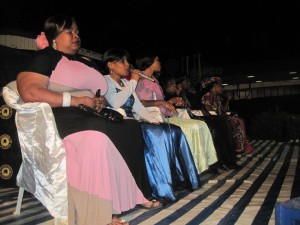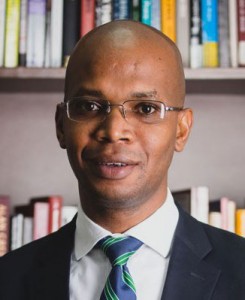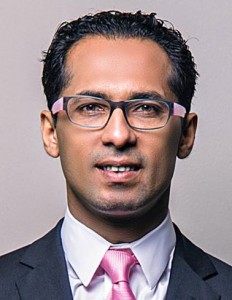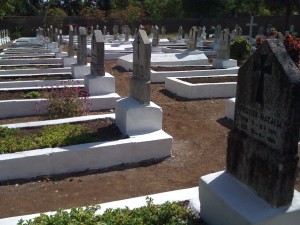by Donovan McGrath
Where Tanzania Taps Its Feet
The focus of this article by Rachel B. Doyle is on the vibrant live music scene in Dar es Salaam. This extract is on the venues, artists and music styles:
The concrete lot next to the Hotel Travertine in downtown Dar es Salaam was full of swaying women in elaborate floor-length gowns trimmed with sequins… Jahazi Modern Taarab were performing a spirited song about love gone wrong, featuring a male-female call-and-response… For certain songs, the crowd rushed to the dance floor en masse. Stop by the hotel on any Sunday and you’ll find the band in full swing … part of a boisterous and exciting music scene that rivals that of any in Eastern Africa… “Tanzanians, they love music. I think they want us to play every day so they can come,” said Jackie Kazimoto, lead singer of Jagwa Music, one of the city’s most thrilling live acts.
Dar’s soundscape is a riot of genres, from modern taarab, which mixes a traditional Swahili sung-poetry style with electronic and Arab-influenced rhythms, to mchiriku, the raw, urban sound that Jagwa Music plays, which is generally found in neighbourhood block parties. You can also dance to classic rumba or bongo flava, the local brand of hip-hop… At the open-air venue Mango Garden, you can enjoy a tasty chicken pilau dish while dancers in matching outfits stomp to catchy Congolese-style rhythms of African Stars Band, whose songs blare from radios across the city…
Leo Mkanyia, a 32-year-old Dar musician, attributes this diversity to the country itself. “We have 125 tribes, and all of them have different tunes, different melodies, different music and traditional music instruments,” he said. I met Leo at Kibo Bar at the Serena Hotel, where he was performing for guests as the leader of a five-piece band. “People here are proud of their music. They love their music, and support it.” (New York Times – online 18 March)
Port of Call
Alexander Wooley highlights major problems with goods passing through Dar es Salaam harbour.
Extract: Dar es Salaam had its first boom in 1887 when the German East Africa Company set up operations there, turning the city into the main shipping portal into German East Africa. After World War I, Dar came under British rule and became a provincial trading post… The port has remained important regionally, but has been well off the major shipping routes between Asia and Europe. Now the Tanzanian government wants to change that. It hopes that with a few improvements it can turn Dar into a major regional trade hub, catapulting Tanzania into the global ranks of middle-income countries. Those plans rest on Dar becoming an increasingly important port for six neighbouring countries: Burundi, the Democratic Republic of Congo (DRC), Malawi, Rwanda, Uganda, and Zambia.
But to get there, Dar has some work to do. The port clears $15 billion of goods each year, but it is woefully inefficient. It is not among the hundred busiest ports in the world; Durban, which ranks 42nd in container traffic, is six times busier than Dar. Goods – sometimes entire containers – disappear. Ships sway idly at anchor, gathering barnacles while they wait ten days, on average, before being able to berth in the port and then ten more days to unload cargo and clear it through customs. With rental rates for large merchant ships typically ranging from $10,000 to $20,000 per day, the delays add tens of thousands of dollars to shippers’ costs. The standard international waiting time is two days. In 2012, container vessels at Mombasa, Dar’s only real rival in East Africa, took less than a day to berth ships and three to four days to unload, clear, and transport their cargo. And whereas the Kenyan port charges flat rates, Dar’s fees are based on the value of the merchandise, which partially accounts for why Tanzania’s dock fees are 74 percent higher than Kenya’s.
Last year, a World Bank report estimated that if Dar became as efficient as Mombasa, it would boost the Tanzanian economy by $1.8 billion per year, equivalent to seven percent of GDP. The report noted that the port’s inefficiency, coupled with poor roads and “administrative obstacles” – tariffs, corruption, bureaucracy, and technology gaps – mean that it is nearly two and a half times more expensive to import food from Vietnam to Tanzania than from Germany. Dar’s problems are not just Tanzania’s. Five or six African countries that it serves are landlocked (the DRC has a port on the Congo River at Matadi)… From a distance, Tanzania, with its long coastline and natural harbour at Dar es Salaam, appears primed to avoid these traps. But the view from the ground is different. The country is open to global trade but not always accommodating; goods offloaded after a long stay in Dar must then venture the poor roads that meander across the country to reach their final destination. (Foreign Affairs – online 5 February)
$523m Dar port deal takes a new twist
Extract: ‘Tanzania has cancelled a $523 million tender for the expansion of the Dar es Salaam port, arguing that the Chinese contractor had overpriced the project. The government d instead chose Impala Africa, a Congolese firm, in a deal that adds a fresh twist to the planned expansion of the port’s berths 13 and 14. Some analysts have questioned how the company [Impala Africa] was chosen to handle such a big project… Transport Minister Harrison Mwakyembe said that the earlier estimates by the Chinese firm, which put the cost well over $500 million, were much higher than what Kenya spent to expand the port in Mombasa…’
(East African 4-10 January)
The 10 Most Powerful Men in Africa 2014
Two Tanzanians are on the Forbes 2014 list: January Makamba and Mohammed Dewji.
Extract: Leonard Ravenhill once wrote “the opportunity of a lifetime must be seized within the lifetime of the opportunity,” and some of the business moguls and entrepreneurs, emerging political leaders, rising corporate titans from Africa are seizing the opportunity of turning the continent around… Our list is distinctive in that it identifies African men who are innovative, courageous, daring and often disruptive in their fields, often times without much fanfare…
January Makamba… is one of Tanzania’s rising stars in government. He is currently the Deputy Minister of Communication, Science and Technology and is rumoured to run for President in 2015. Makamba is a Member of Parliament for Bumbuli constituency. Before running for the Bumbuli seat, Makamba was aide to Tanzanian President Jakaya Kikwete for five years. Named Young Global Leader class of 2013 by the World Economic Forum, Makamba comes from a political family; his father, Yusuf Makambawas Secretary General of the ruling CCM party…
Mohammed Dewji… is the Group Chief Executive Officer of Mohammed Enterprises Tanzania Limited (MeTL) and at 39 is the youngest member of the Forbes’ Africa’s 50 Richest list with an estimated net worth of US $500 million. The MeTL Group began as a family business, a small trading company which Mohammed transformed into one of the largest industrial conglomerates in East Africa, with interests ranging from real estate, agriculture, finance, distribution and manufacturing. The company employs more than 24,000 people across Tanzania and according to Dewji, generates annual revenues of US $1.3 billion. Dewji has been a Member of Parliament since 2005. (Forbes – online 31 January)
Fancy a cheeky Tanzanian red? Three Tanzanian wines making a splash
This article mentions African wines beyond the well-known South African Capes.
Extract: Tanzania’s Dodoma region produces three wines – dry white, red and “natural sweet”. Khadija Madawili, technical manager at SABMiller Tanzania, said the red has a smooth, rounded taste and is best with “Nyama Choma,” a local delicacy of roasted spiced meat, while the “natural sweet” is the perfect compliment for light salads or simply enjoyed as an aperitif. The Dodoma region is home to a number of grape varieties, including Chenin Blanc, Shiraz, Cabernet Sauvignon and Makutupora, a local dry red. Madawili added that the dry earth and sandy soil, combined with low humidity, is perfect for producing dry white and red wines. She said: “We have two harvests a year, in March and August/September. After harvest the farmers leave the plants to rest for only one month.” (CNN – online 9 January)
No homosexuality debate in Tanzanian Assembly
Extract: In Tanzania, the Constituent Assembly has barred any debate on homosexuality. It all started when a member from Zanzibar, Asha Makame, warned the Assembly that there were MPs in the House financed by countries wanting to advance the homosexuality agenda… The Assembly’s interim chairman, Speaker of Zanzibar House of Representatives Pandu Ameir Kificho, said the Assembly was not the right place to discuss sexual behaviour.’ (East African 1-7 March)
Tengeru: A Long lost Polish history
David Meffe tells how a typical European tradition to mark All Saints’ Day also took place in a Tanzanian village.
Extract: In many parts of Christendom, the day [1 November] is a national holiday commemorated by a visit to graveyards, in order to plant flowers and light candles in remembrance and celebration of one’s ancestors. This tradition is especially prominent among the people of Poland. However, one such visit this month took place not in Poland, but curiously enough, here in East Africa, in a small village called Tengeru on the outskirts of Arusha. The community boasts a little known history that begins in war-ravaged Eastern Europe and ends in the shadow of Mt Meru… When Germany invaded the Soviet Union in 1941, many Poles were released from camps in order to raise an army to aid in the national struggle against the Nazis… However… many had nowhere to go and the British, then allies of the Soviets, agreed to a proposal in which refugees from Europe would be spread across the vast British Empire for safety… a group of roughly 5,000 Polish citizens ultimately found refuge in… Tengeru in what was then known as Tanganyika Territory. Here, the Polish refugees lived for nearly 10 years in harmony with the local residents, after which some continued with their journey, finding homes in Britain or America, while roughly 1,000 decided to settle and call Tengeru home for several generations…
[I]n a tiny walled cemetery 149 refugees are buried under white stone crosses or Jewish Stars of David… Today, Tanzanian Simon Joseph is charged with preserving the cemetery and acts as curator for visitors and the hundreds of pilgrims who come every year to pay respects to their long lost ancestors. Joseph inherited the site from his father who lived and worked with the small Polish community for many years… The maintenance and upkeep of the graveyard is funded entirely by the Embassy of Poland in Kenya, as well as by visitor donations… Today, only one living refugee of the Tengeru community remains, 97-year-old Arusha resident Edward Woytowicz… Once Mr Woytowicz dies, he will be the final soul laid to rest among his people, the end of a journey that spanned several thousand kilometres in search of peace and freedom in East Africa…’ (East African 14-20 December)
Tanzania must be a rich country to pay MPs so much
Elsie Eyakuze shares her thoughts on the amount Tanzanian politicians pay themselves.
Extract: If we were all given the ability to vote on our own salaries, who wouldn’t go for the millions? …an infographic available on the Internet showed that Kenyan politicians have awarded themselves a salary that is 97 times the GDP per capita. Tanzania’s politicians, on the other hand, have had to keep up a facade of humility and egalitarianism, which must undoubtedly irritate them. Socialist hangovers are no joke… It was only a matter of time before the prosperity of our neighbours’ political classes would serve as an inspiration to us. And so the news that this current crop of parliamentarians have awarded themselves a severance package of close to $100,000 is only shocking in the sense that we’re a country of people who aren’t used to knowing all that much about what kind of money our politicians make… The question is, how did we end up with a political system with a gaping loophole like this? Our politicians literally hold the keys to the public kitty…
Rumour has it that being a politician here is very expensive and sometimes a risky investment… Greed only explains some of the problem, the rest is just an aspect of belonging to a patronage system that is likely to force you to find creative ways to recoup your costs, like a big fat package at the end of your term. Unfortunately, this is not a good time for us to see our politicians put their hands all over our public funds again. Don’t these folks believe in spin doctors? A move like this is going to raise the obvious questions: Just how poor or rich or whatever is this country anyway? How can we afford to pay parliamentarians that kind of money when we can’t seem to do anything halfway decent in the areas of public service that affects the quality of life for the majority? … Maybe we need to coin a term for our particular political principle: Contradictory development. (East African 8-14 February)
Tanzanian citizens will have the right to information – Kikwete
President Kikwete has at last broken the government’s silence on enacting the much sought Freedom to Information legislation. He declared in an interview in London during the Open Government Partnership (OGP) in October, that the government is working on a bill which will be tabled before Parliament in April this year. He was interviewed alongside the Executive Director of Twaweza NGO, Rakesh Rajani
(Media Watch November – December 2013)





Pingback: Tanzanian Affairs » MO DEWJI ABDUCTION DRAMA